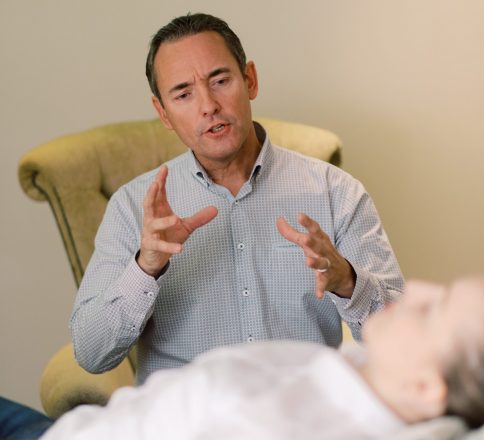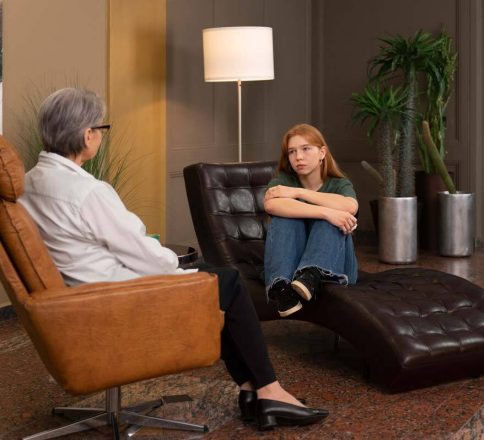At Sullivan Recovery in Mission Viejo, Orange County, California, our addiction aftercare program is designed to help individuals maintain sobriety long after rehab ends. After completing detox, residential care, or an outpatient program, many face the highest risk of relapse during the early weeks of sobriety. Our structured aftercare plan provides consistent meetings, accountability, and emotional support to reduce that risk.

Many patients continue in our outpatient treatment track post-residential or partial hospitalization. This allows for flexible scheduling while maintaining therapeutic oversight. Each patient receives a personalized aftercare plan to match their recovery progress and lifestyle. We offer therapy sessions, medication management, and crisis planning to ensure that stress or emotional triggers don’t derail recovery.

Isolation is a major relapse trigger. Our program emphasizes peer support and access to recovery meetings, including 12-step programs and non-12-step options. These meetings help patients build a safe space to share experiences, gain confidence, and develop a sense of community. Clients may also be referred to a halfway house or sober living homes as part of their plan for increased structure and accountability.

Our team offers medication options to reduce cravings and prevent relapse. These include things such as Methadone for long-term opioid support, and Naltrexone to block euphoric effects of alcohol or opioids Support for benzodiazepine or methamphetamine withdrawal symptoms All MAT options are prescribed with consent, clinical oversight, and integration into an individualized treatment plan.

Many clients struggle with both addiction and co-occurring disorders like anxiety, depression, or PTSD. This is called dual diagnosis. Ignoring one while treating the other increases relapse risk. Our addiction aftercare program includes licensed psychiatry services and therapeutic support to address the mental health challenges that often accompany addiction.

The road to recovery includes learning new skills and changing old behavior patterns. Our program emphasizes the following: Stress management strategies, Daily exercise routines to support health, Meditation to calm the mind, Nutrition education and health screenings for hypertension, sleep, and overall health care. These activities strengthen the body's ability to heal and boost emotional resilience.

Our therapists use dialectical behavior therapy to teach emotional regulation, distress tolerance, and interpersonal skills. These are especially useful for clients with mental health conditions that contribute to substance use. DBT helps clients manage triggers, communicate clearly, and tolerate emotional stress without returning to old habits.


Tailored care strategies, extensive support, and an emphasis on overall wellness underscore our approach to guiding you meticulously toward a life of sobriety and satisfaction. The opportunity to begin your recovery journey should not be delayed – reach out to us now and initiate the transformative path to rediscover yourself.

Orange County Health Care Agency – Opioid Overdose Report
https://www.ochealthinfo.com
(Search: “Opioid Overdose & Treatment Dashboard”)
Provides annual reports on opioid deaths, ER visits, and treatment access in Orange County.
California Overdose Surveillance Dashboard (CDPH)
https://skylab.cdph.ca.gov/ODdash/
Tracks fentanyl, opioid, and polysubstance overdose data statewide, including methamphetamine and benzodiazepine.
National Institute on Drug Abuse (NIDA) – Principles of Effective Treatment
https://nida.nih.gov/publications/principles-of-drug-addiction-treatment-research-based-guide-third-edition
Covers relapse rates, the importance of aftercare, and behavioral strategies for long-term recovery.
Substance Abuse and Mental Health Services Administration (SAMHSA) – Recovery and Aftercare
https://www.samhsa.gov/find-help/recovery
Explains how aftercare programs support ongoing recovery and reduce relapse risk.
An aftercare program focuses on maintaining progress after formal rehab or outpatient program treatment ends. Outpatient treatment involves structured therapy and clinical services, while aftercare emphasizes ongoing support, accountability, and daily recovery maintenance like recovery meetings or sober living.
Yes, aftercare is especially important for individuals facing constant stress, high-responsibility roles, or irregular routines. Our addiction aftercare program provides coping strategies, stress management tools, and personalized support to help clients maintain stability under pressure.
Yes, many aftercare plans include life skill coaching, career guidance, and school re-entry support. Maintaining sobriety often involves rebuilding routine, purpose, and independence—all of which are part of long-term recovery planning.
Absolutely. Many clients transition directly from residential care into our addiction aftercare program. This continuity of care strengthens recovery and provides structure during the most vulnerable stages of post-rehab life.
We are available around the clock to assist you, every day of the year.
© 2024 Sullivan Recovery. All rights reserved.